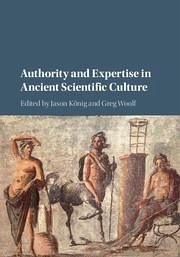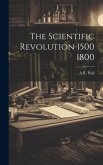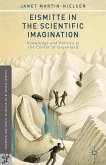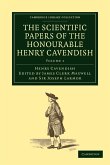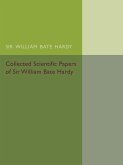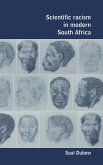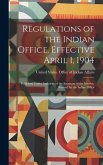Authority and Expertise in Ancient Scientific Culture
Herausgeber: König, Jason; Woolf, Greg
Authority and Expertise in Ancient Scientific Culture
Herausgeber: König, Jason; Woolf, Greg
- Gebundenes Buch
- Merkliste
- Auf die Merkliste
- Bewerten Bewerten
- Teilen
- Produkt teilen
- Produkterinnerung
- Produkterinnerung
How did ancient scientific writers make their work authoritative? This volume answers that question for a wide range of disciplines.
Andere Kunden interessierten sich auch für
![Scientific Indiana Scientific Indiana]() Duane S NickellScientific Indiana33,99 €
Duane S NickellScientific Indiana33,99 €![The Scientific Revolution 1500 1800 The Scientific Revolution 1500 1800]() The Scientific Revolution 1500 180040,99 €
The Scientific Revolution 1500 180040,99 €![Eismitte in the Scientific Imagination Eismitte in the Scientific Imagination]() J. Martin-NielsenEismitte in the Scientific Imagination55,99 €
J. Martin-NielsenEismitte in the Scientific Imagination55,99 €![The Scientific Papers of the Honourable Henry Cavendish, F. R. S The Scientific Papers of the Honourable Henry Cavendish, F. R. S]() Henry CavendishThe Scientific Papers of the Honourable Henry Cavendish, F. R. S52,99 €
Henry CavendishThe Scientific Papers of the Honourable Henry Cavendish, F. R. S52,99 €![Collected Scientific Papers of Sir William Bate Hardy Collected Scientific Papers of Sir William Bate Hardy]() Collected Scientific Papers of Sir William Bate Hardy41,99 €
Collected Scientific Papers of Sir William Bate Hardy41,99 €![Scientific Racism in Modern South Africa Scientific Racism in Modern South Africa]() Saul DubowScientific Racism in Modern South Africa114,99 €
Saul DubowScientific Racism in Modern South Africa114,99 €![Regulations of the Indian Office. Effective April 1, 1904: Published Under Authority of the Secretary of the Interior. Revised by the Indian Office Regulations of the Indian Office. Effective April 1, 1904: Published Under Authority of the Secretary of the Interior. Revised by the Indian Office]() Regulations of the Indian Office. Effective April 1, 1904: Published Under Authority of the Secretary of the Interior. Revised by the Indian Office32,99 €
Regulations of the Indian Office. Effective April 1, 1904: Published Under Authority of the Secretary of the Interior. Revised by the Indian Office32,99 €-
-
-
How did ancient scientific writers make their work authoritative? This volume answers that question for a wide range of disciplines.
Hinweis: Dieser Artikel kann nur an eine deutsche Lieferadresse ausgeliefert werden.
Hinweis: Dieser Artikel kann nur an eine deutsche Lieferadresse ausgeliefert werden.
Produktdetails
- Produktdetails
- Verlag: Cambridge University Press
- Seitenzahl: 474
- Erscheinungstermin: 20. Januar 2017
- Englisch
- Abmessung: 258mm x 182mm x 32mm
- Gewicht: 1012g
- ISBN-13: 9781107060067
- ISBN-10: 1107060060
- Artikelnr.: 47552604
- Herstellerkennzeichnung
- Libri GmbH
- Europaallee 1
- 36244 Bad Hersfeld
- gpsr@libri.de
- Verlag: Cambridge University Press
- Seitenzahl: 474
- Erscheinungstermin: 20. Januar 2017
- Englisch
- Abmessung: 258mm x 182mm x 32mm
- Gewicht: 1012g
- ISBN-13: 9781107060067
- ISBN-10: 1107060060
- Artikelnr.: 47552604
- Herstellerkennzeichnung
- Libri GmbH
- Europaallee 1
- 36244 Bad Hersfeld
- gpsr@libri.de
1. Introduction: self-assertion and its alternatives in ancient scientific
and technical writing Jason König; 2. Philosophical authority in the
Imperial period Michael Trapp; 3. Philosophical authority in the Younger
Seneca Harry Hine; 4. Iurisperiti: 'men skilled in law' Jill Harries; 5.
Making and defending claims to authority in Vitruvius' De architectura
Daniel Harris-McCoy; 6. Fragile expertise and the authority of the past:
the 'Roman art of war' Marco Formisano; 7. Conflicting models of authority
and expertise in Frontinus' Strategemata Alice König; 8. The authority of
writing in Varro's De re rustica Aude Doody; 9. The limits of enquiry in
Imperial Greek didactic poetry Emily Kneebone; 10. Expertise, 'character',
and the 'authority effect' in the Early Roman History of Dionysius of
Halicarnassus Nicolas Wiater; 11. The authority of Galen's witnesses Daryn
Lehoux; 12. Anatomy and aporia in Galen's On the Construction of Fetuses
Ralph M. Rosen; 13. Varro the Roman Cynic: the destruction of religious
authority in the Antiquitates Rerum Divinarum Leah Kronenberg; 14. Signs,
seers and senators: divinatory expertise in Cicero and Nigidius Figulus
Katharina Volk; 15. The public face of expertise: utility, zeal, and
collaboration in Ptolemy's Syntaxis Johannes Wietzke; 16. The authority of
mathematical expertise and the question of ancient writing more geometrico
Reviel Netz; 17. Authority and expertise: some cross-cultural comparisons
G. E. R. Lloyd.
and technical writing Jason König; 2. Philosophical authority in the
Imperial period Michael Trapp; 3. Philosophical authority in the Younger
Seneca Harry Hine; 4. Iurisperiti: 'men skilled in law' Jill Harries; 5.
Making and defending claims to authority in Vitruvius' De architectura
Daniel Harris-McCoy; 6. Fragile expertise and the authority of the past:
the 'Roman art of war' Marco Formisano; 7. Conflicting models of authority
and expertise in Frontinus' Strategemata Alice König; 8. The authority of
writing in Varro's De re rustica Aude Doody; 9. The limits of enquiry in
Imperial Greek didactic poetry Emily Kneebone; 10. Expertise, 'character',
and the 'authority effect' in the Early Roman History of Dionysius of
Halicarnassus Nicolas Wiater; 11. The authority of Galen's witnesses Daryn
Lehoux; 12. Anatomy and aporia in Galen's On the Construction of Fetuses
Ralph M. Rosen; 13. Varro the Roman Cynic: the destruction of religious
authority in the Antiquitates Rerum Divinarum Leah Kronenberg; 14. Signs,
seers and senators: divinatory expertise in Cicero and Nigidius Figulus
Katharina Volk; 15. The public face of expertise: utility, zeal, and
collaboration in Ptolemy's Syntaxis Johannes Wietzke; 16. The authority of
mathematical expertise and the question of ancient writing more geometrico
Reviel Netz; 17. Authority and expertise: some cross-cultural comparisons
G. E. R. Lloyd.
1. Introduction: self-assertion and its alternatives in ancient scientific
and technical writing Jason König; 2. Philosophical authority in the
Imperial period Michael Trapp; 3. Philosophical authority in the Younger
Seneca Harry Hine; 4. Iurisperiti: 'men skilled in law' Jill Harries; 5.
Making and defending claims to authority in Vitruvius' De architectura
Daniel Harris-McCoy; 6. Fragile expertise and the authority of the past:
the 'Roman art of war' Marco Formisano; 7. Conflicting models of authority
and expertise in Frontinus' Strategemata Alice König; 8. The authority of
writing in Varro's De re rustica Aude Doody; 9. The limits of enquiry in
Imperial Greek didactic poetry Emily Kneebone; 10. Expertise, 'character',
and the 'authority effect' in the Early Roman History of Dionysius of
Halicarnassus Nicolas Wiater; 11. The authority of Galen's witnesses Daryn
Lehoux; 12. Anatomy and aporia in Galen's On the Construction of Fetuses
Ralph M. Rosen; 13. Varro the Roman Cynic: the destruction of religious
authority in the Antiquitates Rerum Divinarum Leah Kronenberg; 14. Signs,
seers and senators: divinatory expertise in Cicero and Nigidius Figulus
Katharina Volk; 15. The public face of expertise: utility, zeal, and
collaboration in Ptolemy's Syntaxis Johannes Wietzke; 16. The authority of
mathematical expertise and the question of ancient writing more geometrico
Reviel Netz; 17. Authority and expertise: some cross-cultural comparisons
G. E. R. Lloyd.
and technical writing Jason König; 2. Philosophical authority in the
Imperial period Michael Trapp; 3. Philosophical authority in the Younger
Seneca Harry Hine; 4. Iurisperiti: 'men skilled in law' Jill Harries; 5.
Making and defending claims to authority in Vitruvius' De architectura
Daniel Harris-McCoy; 6. Fragile expertise and the authority of the past:
the 'Roman art of war' Marco Formisano; 7. Conflicting models of authority
and expertise in Frontinus' Strategemata Alice König; 8. The authority of
writing in Varro's De re rustica Aude Doody; 9. The limits of enquiry in
Imperial Greek didactic poetry Emily Kneebone; 10. Expertise, 'character',
and the 'authority effect' in the Early Roman History of Dionysius of
Halicarnassus Nicolas Wiater; 11. The authority of Galen's witnesses Daryn
Lehoux; 12. Anatomy and aporia in Galen's On the Construction of Fetuses
Ralph M. Rosen; 13. Varro the Roman Cynic: the destruction of religious
authority in the Antiquitates Rerum Divinarum Leah Kronenberg; 14. Signs,
seers and senators: divinatory expertise in Cicero and Nigidius Figulus
Katharina Volk; 15. The public face of expertise: utility, zeal, and
collaboration in Ptolemy's Syntaxis Johannes Wietzke; 16. The authority of
mathematical expertise and the question of ancient writing more geometrico
Reviel Netz; 17. Authority and expertise: some cross-cultural comparisons
G. E. R. Lloyd.

